Samarpan Centre for Autism Spectrum Disorders
Samarpan was established in February 2003 in response to a felt need for a special school for autism. Samarpan was the first organized service for autism in Maharashtra. It started decades ago as a small service but today has become a vibrant centre and is often the first choice of families for intervention of autism in their children. Use and application of autism specific evidence-based strategies and overall professional approach to service delivery
contribute significantly in making Samarpan one of the leading autism centers in India.
Services
- Screening and diagnosis
- Differential assessment
- Early intervention
- Special education and vocational training
- Allied therapies including applied behaviour analysis (ABA), dance and movement and art therapy
- Parent counselling and training
- Adaptive physical education and yoga
Intervention protocol
(i) Differential diagnosis and assessment
(ii) Development of Individual Intervention Plan
(iii) ABA based teaching
(iv) Sensory integration therapy
(v) Language and communication therapy
(vi) Program monitoring and evaluation
(vii) One to one or small group intervention
Parent support
- Parents of newly diagnosed children need emotional support and factual information about autism. Professionals at Samarpan hold several sessions with the parents at this stage. A newly diagnosed child is generally of pre-school age and requires early intervention. Parents must follow up the intervention at home too. Such parents are asked to observe intervention sessions and are shown how to modify play and interactive games to suit the learning level of their child.
- Out of station parents who come only for diagnosis and guidance are asked to spend a few days so differential diagnosis can be carried out. Besides counselling sessions, the parents are provided with guidance about autism related services in the area where they live. In addition, such families are given a 3-month home program based on the assessment report. Parents are encouraged to be remain in contact for further guidance if needed.
- Parents of older children are encouraged to come and discuss their children’s problems with the teachers and the coordinator. In case of specific issues, they are asked to observe the child as the teacher works with him/her. Report on children’s
progress is shared twice in an academic year.
Intervention programs are planned in consultation with the parents. All parents are encouraged to attend training programs that develop their capacity for effective management of autism. All parents are informed about social and welfare schemes for autism as announced by the State and Central Governments from time to time.
Samarpan has a group of trained and dedicated professionals who work in collaboration for the complete development of the child. The group consists of a multi-disciplinary team which work towards a common goal of holistic all development of the students.
Services
Identification & Differential Diagnosis
Early intervention for autism spectrum disorder (ASD) has proven to be a successful strategy for remediating many difficulties experienced by these children. A lot of progress is observed if the intervention is started at an early stage. As a result, accurate diagnosis at a young age is essential. Also, the particular pattern of symptoms that are seen in a 2-year-old with ASD may differ from that seen at the age of 4 or 5 years. The use of standardized assessment instruments and the strict application of diagnostic criteria need to be employed with caution when diagnosing a child with autism. At Samarpan, a range of diagnostic tools, used worldwide are used for diagnosis of children. Diagnosis is done for children as young as one and a half years. Differential diagnosis is done for children with autism, mental retardation, Asperger’s Syndrome, attention deficit hyperactive disorder and other developmental disabilities.
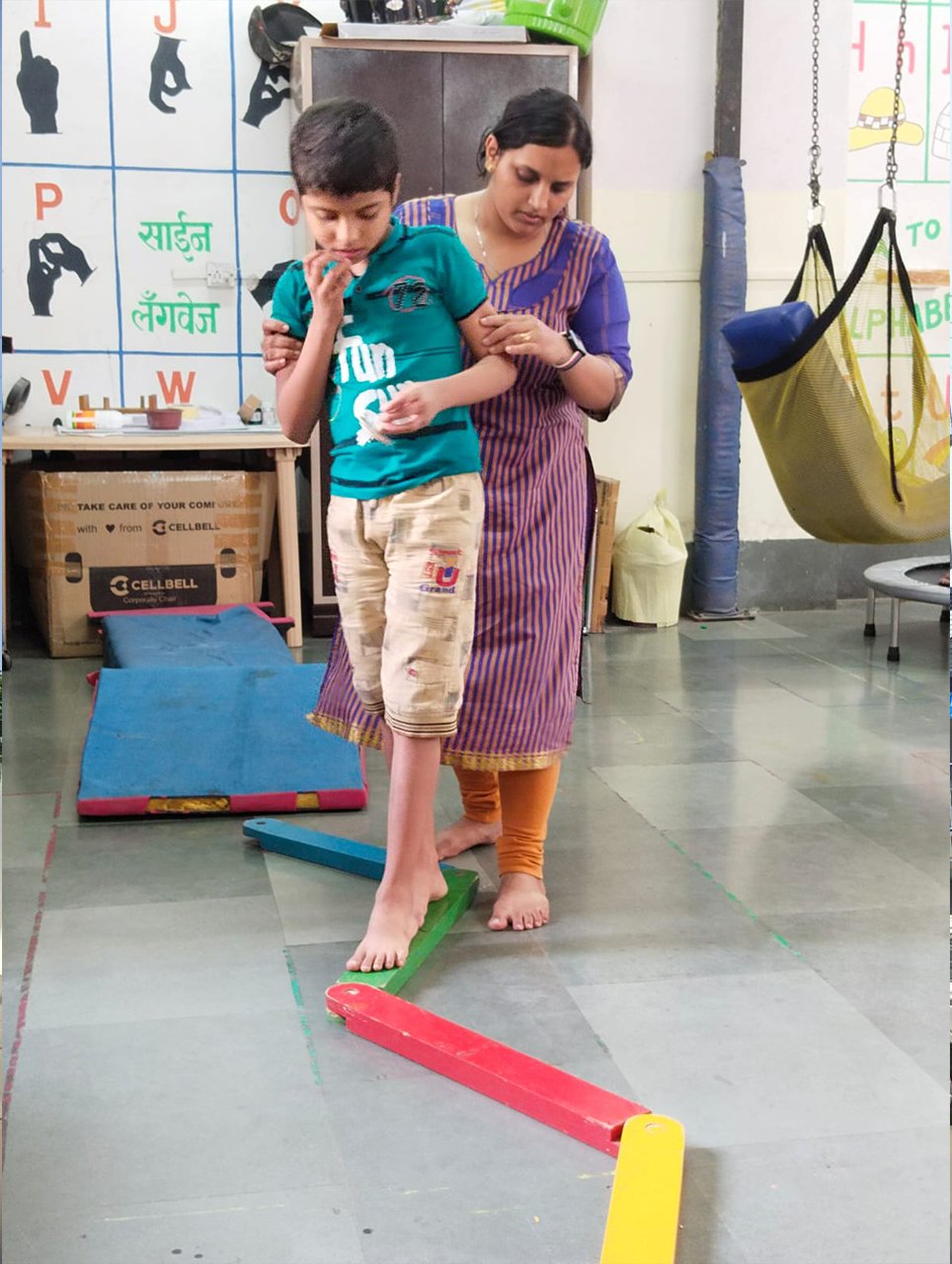
Early Intervention
Newer research studies indicate that the presence of Autism Spectrum Disorders (ASD) can be identified in children younger than 3 years of age. Early identification of ASD benefits both the child and its family as it leads to an improved prognosis. At Samarpan, children in the Early Intervention group i.e. those below 7 years of age; receive individualized therapy in Language and Communication, and Sensory Integration. The main focus here is in the development of pre-learning skills, appropriate play skills and age-appropriate skills for enhanced social interaction.
Individualized Training Programs
Every child that is identified with ASD and has been admitted to the school is assessed by a multi-disciplinary team. This team comprises of special educators, psychologist, occupational therapists and a speech and language therapist. The multi-disciplinary team assessment helps create a baseline of the child and is the foundation on which an individualized educational plan (IEP) is designed for him/her. The program designed is unique to the needs of the child and is implemented by the same multidisciplinary team. Various techniques that are devised specific to training of children with ASD such as Floortime, Visual Strategies, Adaptive Behaviour Therapy, TEACHH etc. are used extensively at Samarpan. The parents are trained to execute some elements of the IEP at home and thereby empowered to cope with their child with ASD. Progress achieved in each goal of the IEP is systematically recorded, monitored and modified (if necessary) as per need of the child.
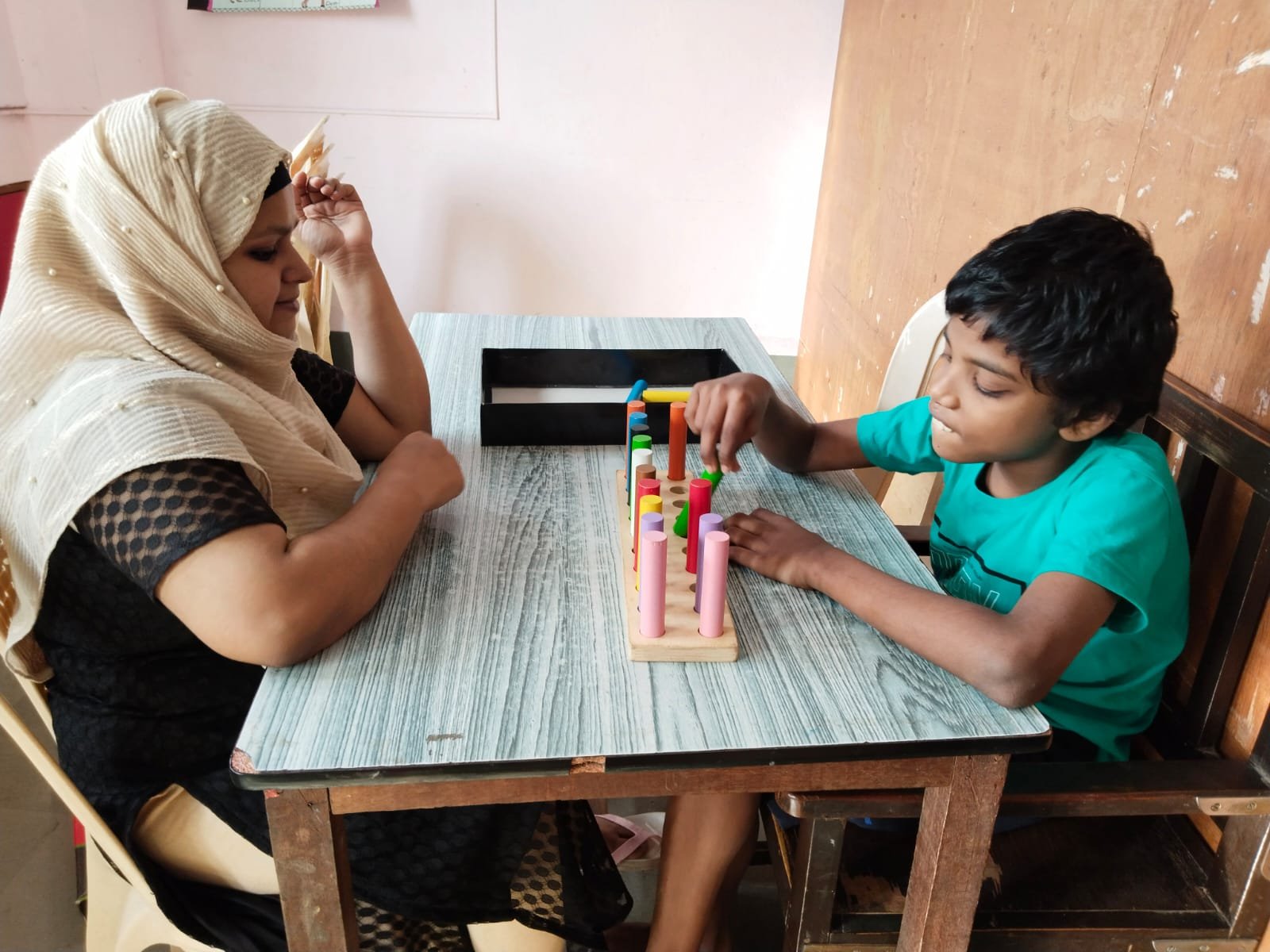
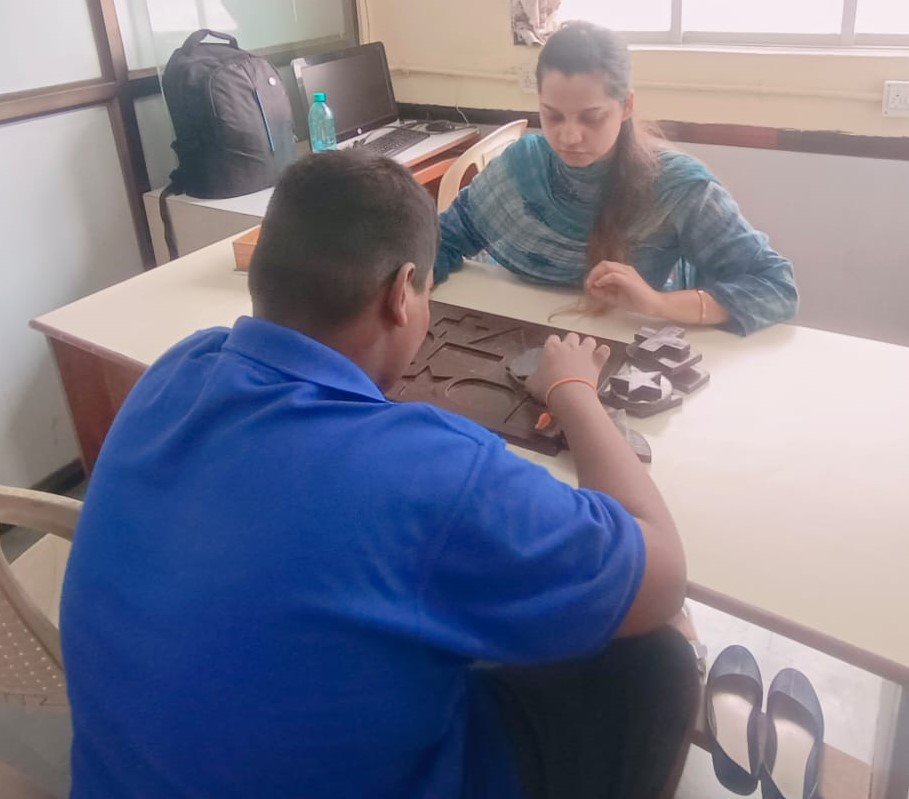
Sensory Integration and Occupational Therapy
Samarpan has a well-equipped therapy unit with an ample number of therapists forremediation of sensory integration deficits and to enhance attending skills, and focus in children with ASD. Besides therapy for vestibular and proprioceptive stimulation, the unit also offers exercises to enhance development of fine and gross motor dexterity critical for functional activities of daily living. The therapy unit at Samarpan is a ‘cheerful’ place for the children and it aids in the adjustment of the child in school.

Language and Communication Therapy
Children with ASD are characterized by deficits in language, communication and poor social interaction skills. Language and communication therapy is thus the focal point of any IEP drafted for children with ASD irrespective of whether they are verbal or non-verbal.Alternative and Augmentative Communication (AAC) techniques such as the Makaton Language Program and the Picture Exchange Communication System (PECS) are used as integral part of the program. Language and Communication skills are also developed and enhanced through group activities.
Adaptive Physical Education
It has been found that children with ASD have limited opportunities to engage in physical exercise and to activities which enhance physical fitness as their age-mates find it difficult to modify games to ensure equal participation. Thus at Samarpan, Adaptive Physical Education is a co-curricular activity for every child admitted. This also aids to reinforce the training received in Occupational and Sensory Integration therapies.
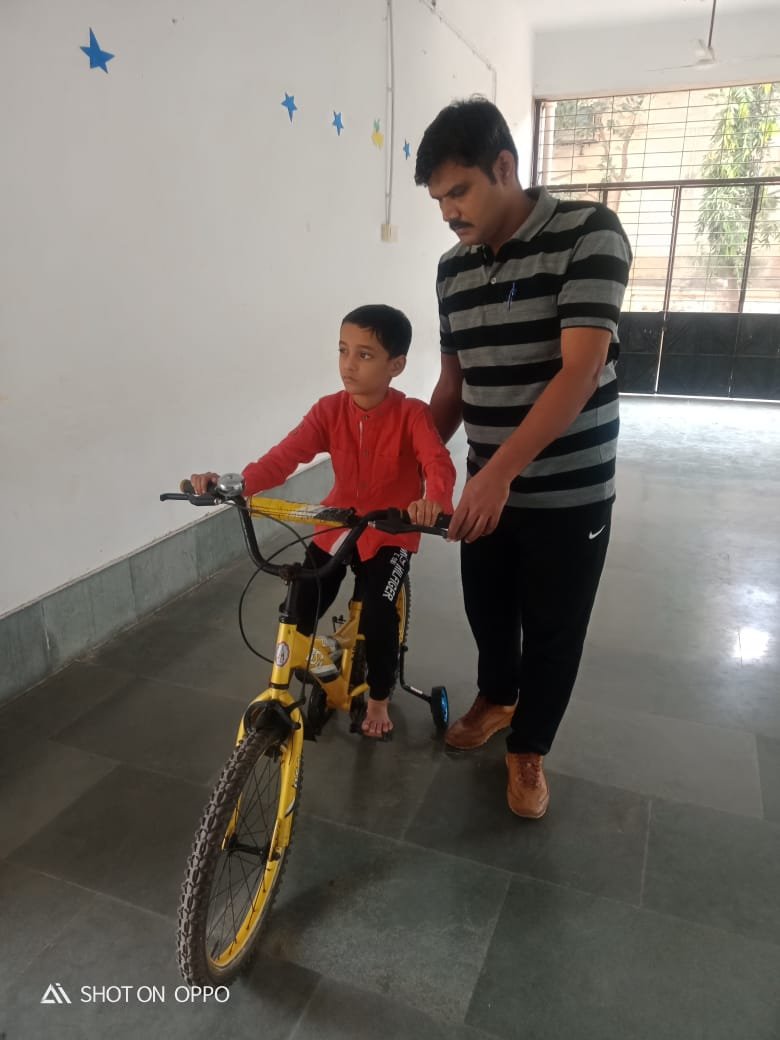
Small-Group Class Room Programs
Once the child with autism develops sitting tolerance, eye contact and responding to instructions in one to one sessions, he/she is shifted to a “small group class room program”. These groups normally consist of two or three children who are at the same stage of learning. They follow a structured program that focuses on education, language and communication training in activities of daily living, social skills and adaptive physical education. They also learn turn taking and social interaction as part of their program.
Pre-Vocational Training
Individuals in their teens are trained to develop pre vocational skills with a view that theymust be productive earning members of society. Samarpan has a pre vocational unit whichtrains the youth with ASD to produce a range of items ranging from jewellery to chocolates and cookies to house hold products like table mats, trays, coasters, etc. The unit also trains them to develop independence in domestic and kitchen tasks. These items are sold at a number of exhibition cum sales. They are also ordered in bulk by various well-known banks, and multi-national companies. The emphasis here is to develop fine motor skills (for handicrafts), kitchen/domestic skills and most importantly for independent living.
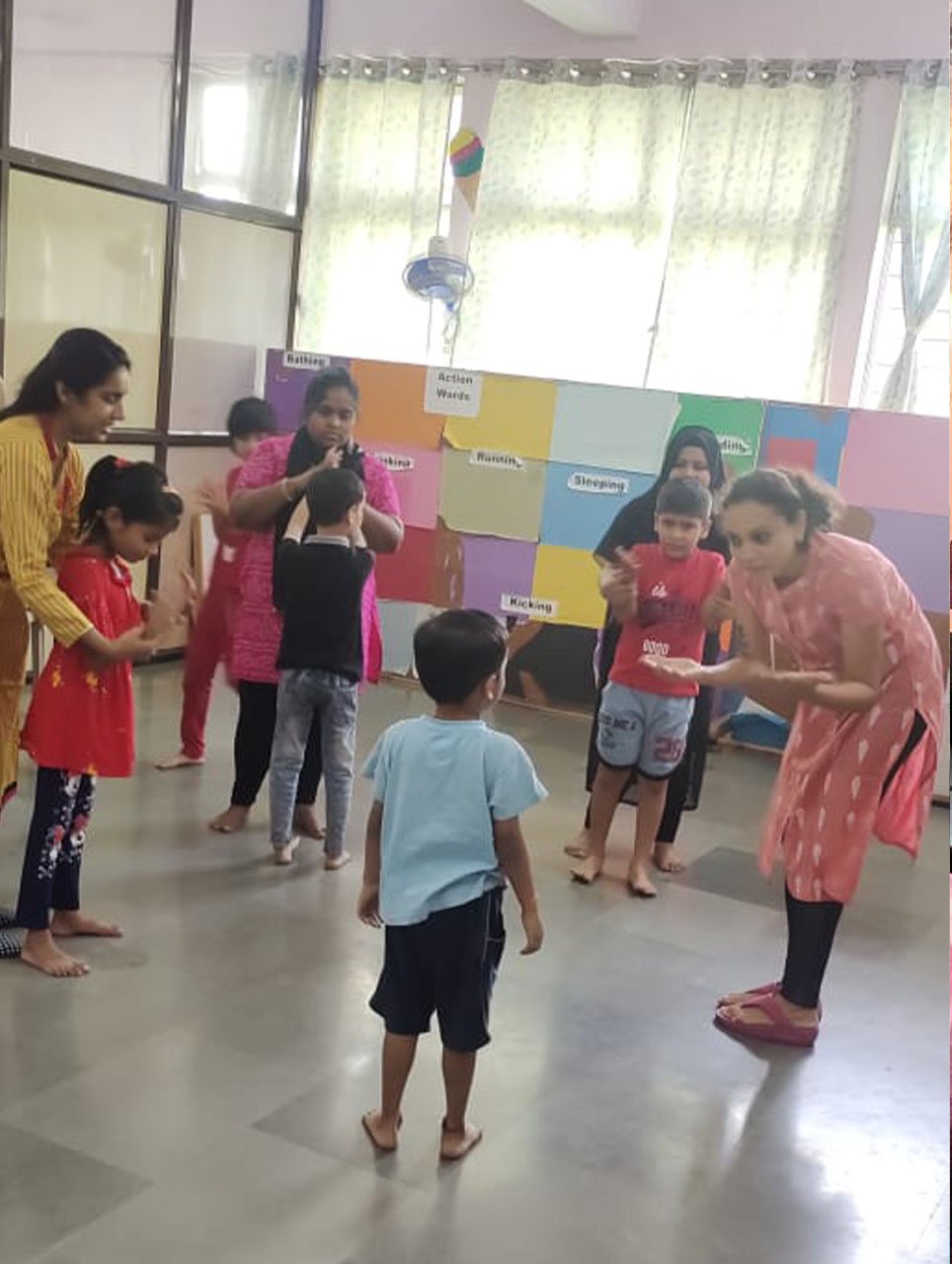
Allied therapies
- Dance and movement therapy
- Adaptive Physical Education
- .Yoga
Parent support
Training a child with autism has to have continuity. A child in early intervention may come for training for one and a half hours per day. This training would more effective if it is continues at home. At Samarpan, parents are trained to follow their child’s individual education plan using methods of teaching that follow the principles of ‘Applied Behavior Analysis’. In addition, some parents are also trained to work with children other than their own under the supervision of a trained staff.
Team

Ms. Reshma Gaikwad
B.A(Sociology), D.Ed (Special Education) (MR),
B.Ed (Special Education) (ASD)
Program Co-ordinator

Miss. Sneha Mahesh Ambre
Diploma in Special Education (ID)
Special Educator
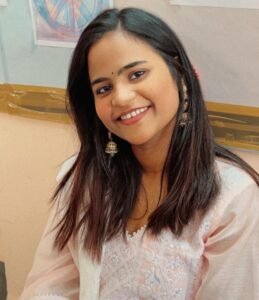
Ms. Anjali Gupta
B.A., D.Ed (Special Education) (ID)
Special Educator
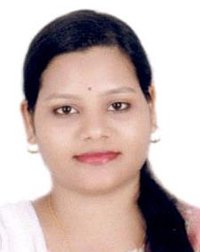
Ms. Sayali Dalvi
B.Com, B.Ed (Special Education) (ASD)
Co-ordinator
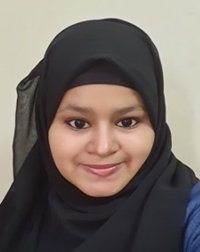
Ms. Malika Ansari
B.Com, B.Ed (Special Education) (ASD)
Special Educator
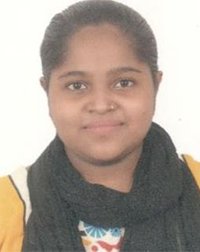
Ms. Susama Adhikary
B.Com, B.Ed (Special Education) (ASD)
Special Educator
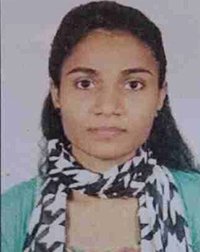
Ms Priyanka Gupta
B.A., B.ED. in Special Education (Autism Spectrum Disorder)
Special Educator

Mr. Ashwani Shukla
H.S.C
Adaptive Sports teacher

